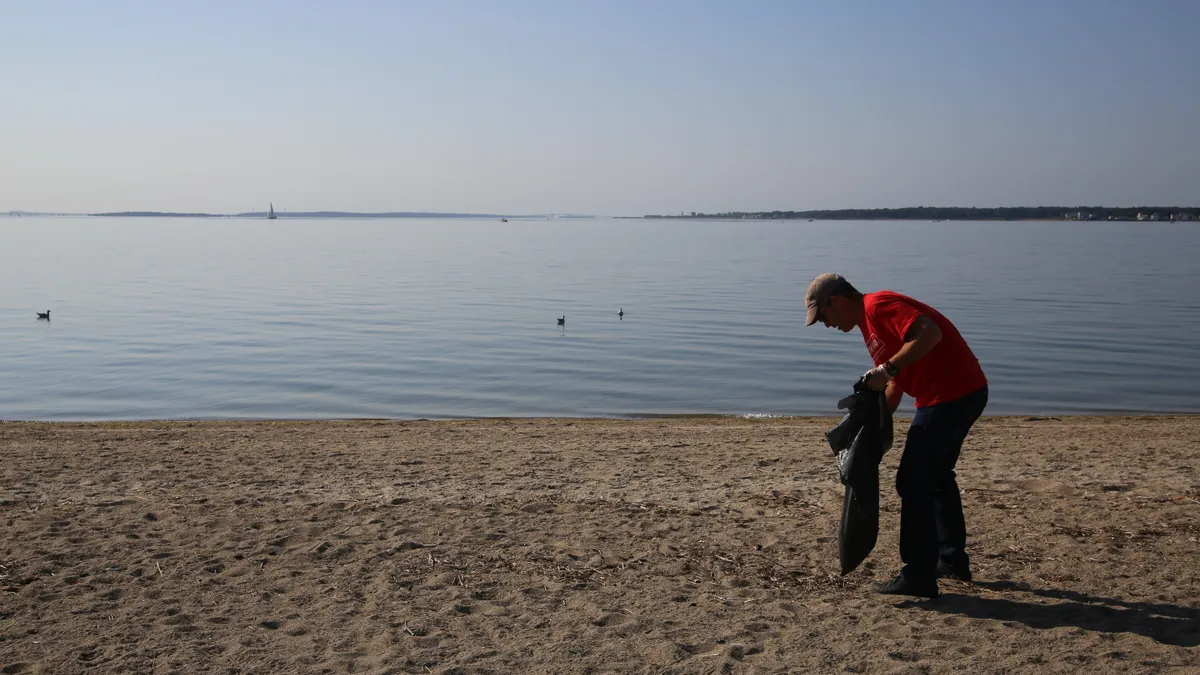Dive Brief:
- Dow Packaging and Specialty Plastics, along with Bemis Company and Polykar, have announced an imitative to produce trash bags from recycled material. According to Amir Karim, chief operating officer at Polykar, the collaboration has produced over 300,000 recycled plastic trash bags so far.
- Bemis collected post-industrial scrap plastic, which was sent to Polykar facilities. Once at those facilities, Polykar used a recycling technology from Dow to combine the plastics into a recycled resin, which Polykar was then able to produce into plastic bags, according to a Dow press release.
- The press release also noted the recycled bags will be used during this weekend's International Coastal Cleanup as volunteers collect trash and marine debris from beaches.
Dive Insight:
According to Jeff Wooster, global sustainability director for Dow Packaging and Specialty Plastics, these plastic bags aren't going to be available for consumer purchase any time soon. In an email, Wooster told Waste Dive that Dow is "committed" to further work on plastics recycling and recovery. It's plausible that a strong showing from the 300,000 recycled bags during the International Coastal Cleanup, however, could inspire Dow and other companies to continue investing in bags and other products made from flexible plastics. Wooster added that RETAIN, the Dow system used in creating these plastic bags, is "globally available" and can be used in a variety of applications — which may be increasingly important as China, the world's largest purchaser of plastic scrap, plans to close its doors to imports of some material.
This isn't the first time that Dow has gotten involved with ocean cleanup efforts, and the company doesn't stand alone in its objective. Dell recently doubled its goal for using recycled materials by 2020, TerraCycle has put plans in motion for worldwide ocean waste collection and the Ellen MacArthur Foundation is offering millions of dollars in prize money for innovative solutions for plastic packaging. Ocean waste pollution is a monumental problem, so it may be necessary for the entire industry, along all parts of the waste supply chain, contribute to diversion and cleanup — especially as debate continues as to who's "responsible" for making plastic easier to recycle.
It's been a big year for addressing ocean waste. As municipalities take legal action to reduce debris making it into the ocean and as environmental campaigns become more popular, now is a good time for players in the plastics and recycling industries to to get involved — especially given the recent analysis that found only 9% of all plastic ever produced has been recycled.














